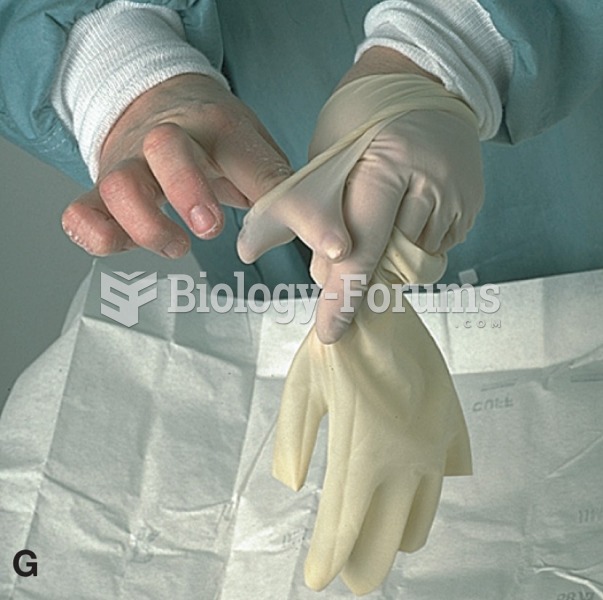|
|
|
The ratio of hydrogen atoms to oxygen in water (H2O) is 2:1.
People about to have surgery must tell their health care providers about all supplements they take.
Asthma cases in Americans are about 75% higher today than they were in 1980.
Though Candida and Aspergillus species are the most common fungal pathogens causing invasive fungal disease in the immunocompromised, infections due to previously uncommon hyaline and dematiaceous filamentous fungi are occurring more often today. Rare fungal infections, once accurately diagnosed, may require surgical debridement, immunotherapy, and newer antifungals used singly or in combination with older antifungals, on a case-by-case basis.
Alcohol acts as a diuretic. Eight ounces of water is needed to metabolize just 1 ounce of alcohol.







